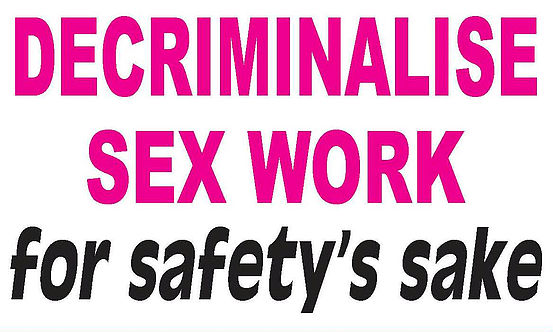TUC Congress 2017: SUPPORT Motion 39 Decriminalisation of sex work
SUPPORT Motion 39 Decriminalisation of sex work
Received from ASLEF supported by GMB
Congress notes that austerity measures since 2010 have led to an increase in the number of people working in the sex industry and is concerned by examples such as Doncaster, where on-street prostitution has risen by 60 per cent, an increase primarily attributed to the impact of benefit sanctions.
Congress recognises that many people would not choose to work in the sex industry and that they do so because of economic necessity rather than criminal coercion. It further asserts that 74% of off-street prostitutes work in the sex industry to pay household expenses and support their families.
Congress regrets that current UK legislation forces sex workers to work alone, leaving workers vulnerable to crime and the threat of losing access to their families.
Congress believes sex workers should have the same rights as those in other industries.
Congress acknowledges the 2016 Home Affairs Select Committee report which recommended that sex work in the UK should be decriminalised and Amnesty International’s decision to adopt the same policy.
Congress further supports the New Zealand model of full de-criminalisation which would give sex workers protections as workers in law.
Congress calls upon the TUC to adopt a policy in favour of full de-criminalisation and to campaign alongside appropriate organisations
Did you know?
There are approximately 72,800 sex workers in the UK — 88% women, but also other genders (Brooks-Gordon, 2015).
Sex work is on the increase because of austerity – a 60% increase in street prostitution in Doncaster is reported to be primarily due to benefit sanctions (The Star, 19 March 2014).
Sex workers are forced to work in isolation by the law and are therefore at greater risk of attack. Brothel-keeping law makes it illegal for two or more sex workers to work together. Arranging work for other people is criminalised as “controlling for gain” regardless of whether people are working of their own free will and not coerced (Appeal Court Regina vs Massey, 2007).
Arrests and raids deter sex workers from reporting violence (National Ugly Mugs 2012-2015).
There is no evidence that the majority of sex workers are trafficked; research shows it is less than 6% of migrant sex workers who are trafficked (Mai, N, 2009).
Swedish law which criminalises the buying of sex “negatively impacts sex workers” (Global Commission on HIV and the Law, 2012). It means sex workers face increased stigma and are more vulnerable to violence (Jakobsson & Levy, 2014) and there is no evidence of a reduction in prostitution (Levy 2011).
Decriminalisation was introduced in New Zealand in 2003 with verifiable success (Abel, G et al 2007).
Decriminalisation would:
- Increase safety – sex workers would be able to work together and report violence to the police without fear of arrest.
- Provide legal recognition of sex workers’ right to better working conditions, a pension, and the right to form and join trade unions.
- Enhance health – sex workers could access services without discrimination.
- Free up police time.
- End criminal records which make it harder to leave prostitution.

